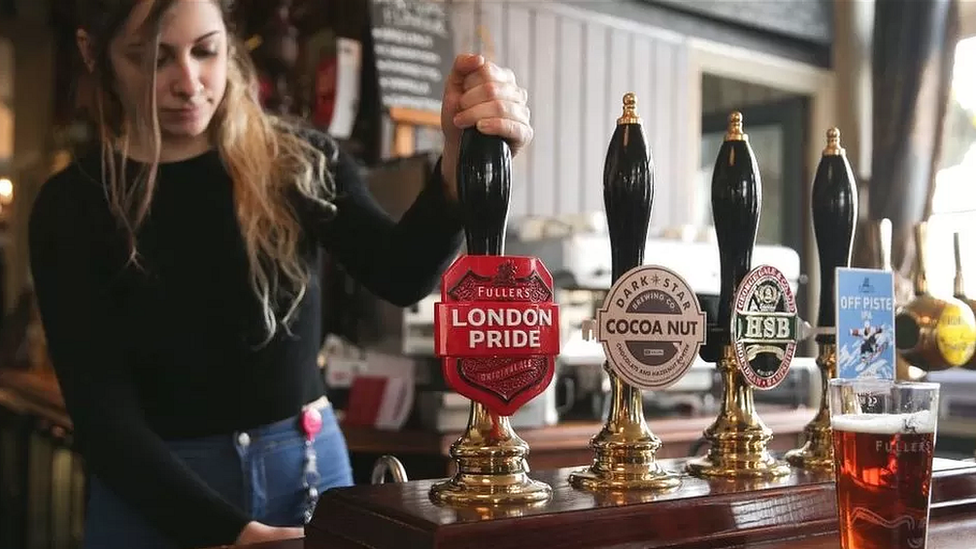Fullers pub chain blames rail strikes for losing millions
- Published
- comments

Pubs group Fuller, Smith & Turner says it has lost £4m in sales and will miss its profit targets this year due to the impact of ongoing rail strikes.
The chain, which has almost 400 pubs, also warned that cost-of-living pressures were weighing on the business.
Fullers, which also operates hotels, said underlying sales for the year to 21 January 2023 had risen by a fifth.
But boss Simon Emeny said the impact of the strikes was "frustrating".
In a statement the company said: "Due to the impact of the train strikes, our sales compared to the same four weeks in 2019 have declined by 5%.
"Since the start of October, we estimate that industrial action has reduced our sales by some £4m and the consequent impact on profitability means that we now expect to report earnings below market expectations for the full year."
In its last full-year results before Covid struck, Fullers reported sales of £333m and pre-tax profits of £166.2m.
Looking ahead, Mr Emeny said that "while ongoing strike action will dampen sales" there was good demand from customers "as office workers and tourists continue to return to the capital".
Rail workers staged a number of walkouts last year over pay and conditions. There will be further strikes on 1 and 3 February by members of Aslef, the train drivers' union, which will affect 15 rail companies.
The RMT union, which also represents rail workers, recently said the hospitality industry was "collateral damage" in what it claimed was a deliberate government strategy to prolong the rail disputes.
Rail minister Huw Merriman said last week that the rail strikes had cost the industry and the wider economy more than £1bn.
He admitted that it would have cost less to settle the dispute.
In a letter to hospitality firms, RMT general secretary Mick Lynch said: "The government admitted that prolonging the rail dispute was part of a deliberate strategy that was dictated by the government's concern to keep down the pay of rail workers, nurses, ambulance workers and teachers.
"The wider economy and the business interests who relied on pre-Christmas trade were just collateral damage in that policy."
Fullers said that annual like-for-like sales rose by 20% compared to the previous 12 months when many Covid restrictions were still in place.
It said revenues are close to pre-Covid levels.
Related topics
- Published9 May 2024

- Published6 January 2023
